The question of Free Will is often posed against a backdrop of Scientific Determinism. If the Physical World is determined according to Physical Laws, where can there be room for our own Freedom?
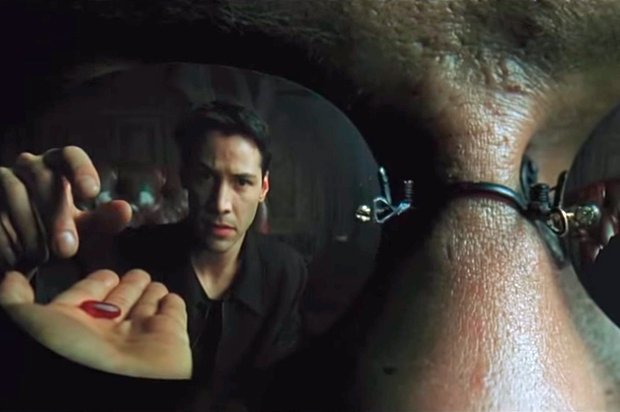
There are usually three ways people try to escape this suffocating situation:
- By appealing to quantum theory that posits some element of uncertainty in physical behaviour, but as the skeptics are quick to point out, how we are supposed to get from the uncertain micro element in quantum theory to human macro freedom, remains entirely unclear.
- Another approach is to frame the answer to our question in such a way as to make ideas about free will and determinism compatible. This position is usually embraced by those who think that there really is no deep problem here, just a confusion in the way we think about the problem.
- A more honest approach if we don’t think there is a deep problem is to say that there is no objective fact of the matter. In that case it is up to each of us to select the belief that we like best. Co-founder of Steemit, @dantheman, goes for this option, holding that we should select the belief that makes us most happy.
Here we will not go into either of the above choices. Against the first, we won’t need to postulate matters about physical facts. Against the latter two, we are going to be more optimistic both that there is a genuine problem and that it has a nontrivial solution!
The Real Problem
Our solution begins by pointing at the right problem. Rather than worrying about our language, our beliefs or the physical world, we will be questioning into the heart of the being with the free will - that’s you and me!
When neuroscientists and spiritual gurus agree on something, it is usually the illusory nature of the ego. If we identify ourselves with our own ego, and our ego is an illusion, it is quite natural to suppose that our feeling of free will is an illusion. Both the neuroscientists and the spiritual gurus each have their own reasons for thinking that the free will is an illusion.
They are also different in their conclusion, while both agree that free will IS an illusion, the neuroscientists, almost paradoxically, tend to say, “We have to Believe!” in the free will illusion, whereas the spiritual gurus tend to say, “No, we don’t have to believe in the illusion.”
The Neuroscientist: “We Have to Believe!”
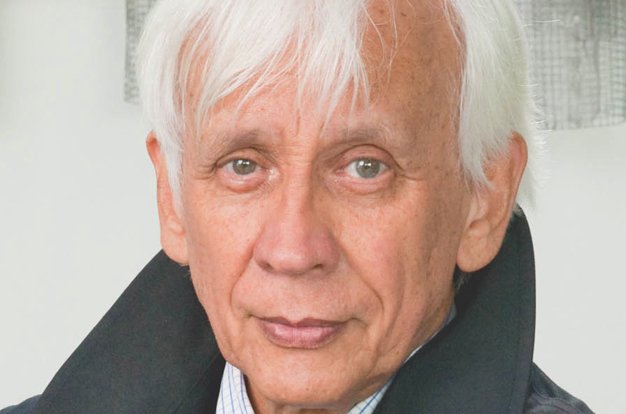
As an example of a neuroscientist, take Rodolfo llinas, a giant in neuroscience, who did a study on himself that accidentally made him see the illusory nature of free will. What he did was get his assistant to stimulate an area of the head that would cause his leg to move.
On the first attempt his assistant stimulated the area in his brain and the leg moved, but he had to do the experiment again, he said, because he decided to move the leg after he felt the stimulation. So they did another attempt, and the same thing happened, he said he decided to move the leg after he felt the stimulation. Only after doing this half a dozen time did it dawn on Rodolfo Llinas that he said he decided to move his leg after he felt the stimulation. Because he felt the stimulation, and he felt that the stimulation would cause his leg to move, it felt like it was his own decision, even if it was his assistant making the call every time.
When I came across this experiment, I uploaded my first video ever because I was so excited. The experiment proves that the feeling of free will can be illusory. Perhaps in many instances it is not illusory, but in this case it is. This is significant because it shows that the feeling of free will is not, for instance, like the feeling of pain. When you feel pain, you are in pain. It wouldn’t make sense with an illusory pain. So the feeling of free will is more like perception in that respect, where sometimes we have illusions/hallucinations and at other times - perhaps - we see what is really there.
What Rodolfo llinas concludes from this is that our brain, our system, takes possession of whatever happens in the brain that we can predict is going to happen. So when he feels the stimulation, because the brain as a whole knows what is going to happen, it says to itself “that is my choice, I am doing that now” even if the ego/center isn’t really making that choice. Given that the brain works this way, Rodolfo concludes that we have to believe in free will, even if we can know intellectually that strictly speaking, it isn’t true in the way we feel as if we will things freely.
The Spiritual Guru: “We Don’t Have to Believe!”
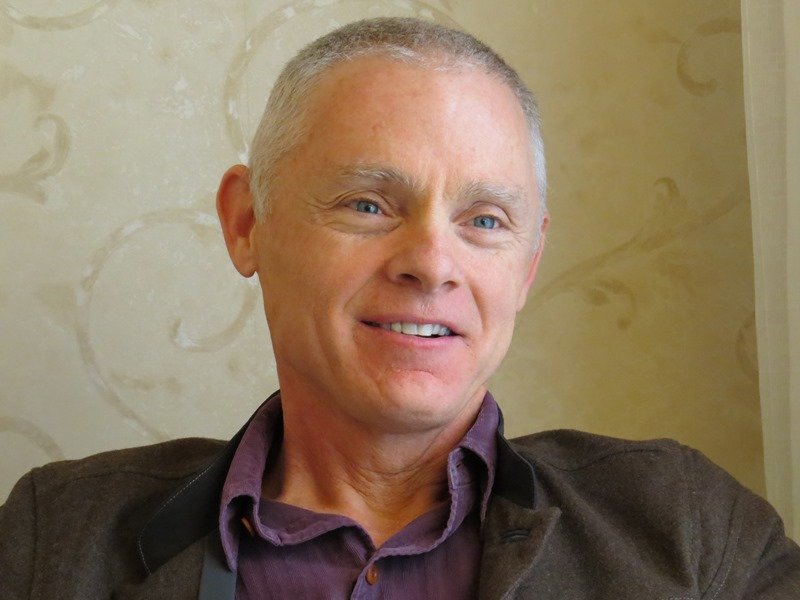
Spiritual gurus also claim that free will is an illusion, but for another reason than neuroscience. They typically claim that they have seen through the illusion directly, that there is no ego and that the movement we call ego is just the conceptual process where we say to ourselves that “this is mine” and “this is not mine,” e.g. when your leg moves that “it is my leg, my action.”
Everytime we go directly back to find the ego, we find that it was not there prior to thought but followed afterward. It is an interpretation of an event, of a given thought or emotion. It’s the after-the-fact assumption that “it’s mine.” - Adyashanti
Whether certain individuals are able to see this or not is hard to verify. But it seems that Roldolfo Llinas above just assumes that we cannot realize the truth directly, and personally I see no scientific reason why this should not be possible. That individuals like Adyashanti say things that correspond so neatly to what we find by experiment is also highly intriguing.
In this respect the situation is quite strange, for while neuroscientists argue that there is a fact of the matter, they say we must hold on to our illusion, while it is the spiritual gurus who say we must rid ourselves of this illusion. Both emphasize the practical aspect, the neuroscientist believes it impossible to function without the belief, while the spiritual believes that only by seeing through the illusion can we rid ourselves of suffering.
As a last retort, the neuroscientist could appeal to a fascinating experiment that shows that “beliefs about free will can change brain processes related to a very basic motor level” which could be bad for us. But even so, and with all the interpretive challenges of that study, it still seems strange to me that a scientist would so easily sacrifice truth for utility.
While these two positions illuminate the problem as being largely contained within the question of our ego structure and conscious awareness, they still do not get to the heart of the problem. To see what the real problem is about, we have to dig a bit deeper.
The Real Anxiety
[it] shifted his existential dread from a fear that he was just a 98.6 calculating machine to a fear that he was nothing but a linguistic construct - David Foster Wallace
The real anxiety is illustrated by two philosophical thought experiments. The first shows us our anxiety about being mechanical. The second shows us our anxiety about being “nothing.”
The Zombie Thought Experiment

In this thought experiment we can imagine a robot that acts just like a human, but does not have any consciousness. In short, a sophisticated robot that can do all we humans can do, just like us, but doesn’t feel or have any experiences.
This makes us anxious because we feel like we are something more than mere mechanisms. We feel that we are a ghost in the machine, a spiritual being, that happens to be located in a body, in a brain, but that we are something different from it, and not exactly identical to it.
When we find out from science, from technology, from biology, that our actions are based on biological machinery, that our eyes are like cameras, that our brain is like a computer, we worry that our free will is determined in such a mechanical way.
The Homunculus Thought Experiment
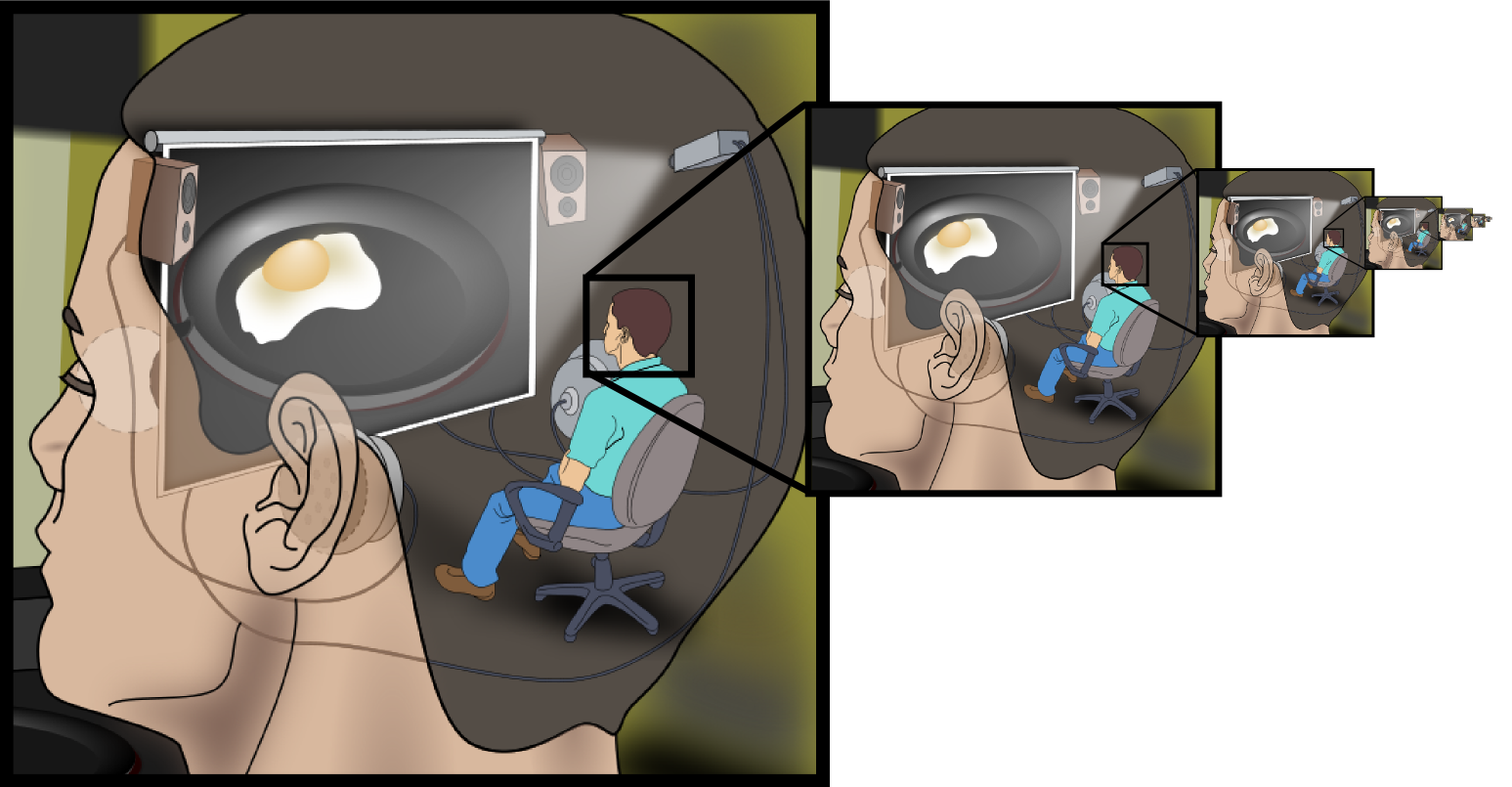
In the homunculus thought experiment we can imagine that we are a person sitting inside our head seeing everything on a big screen. The question then becomes, is there a person inside that person again, watching that on another screen? It becomes an infinite regress.
The worry here is that if we are not in some particular location, how can we be anything at all? Are we infinitely small? Are we everywhere? When we try to see where our awareness is we can’t locate it in space like we do with physical things. We get confused because we expect to be in a single place, like our head and our eyes are in a relatively well-defined space.
While the first thought experiment makes us anxious that we are mechanical beings without any special power, this second thought experiment makes us anxious exactly because we are not mechanical beings who can be pointed to in a physical location.
The Solution
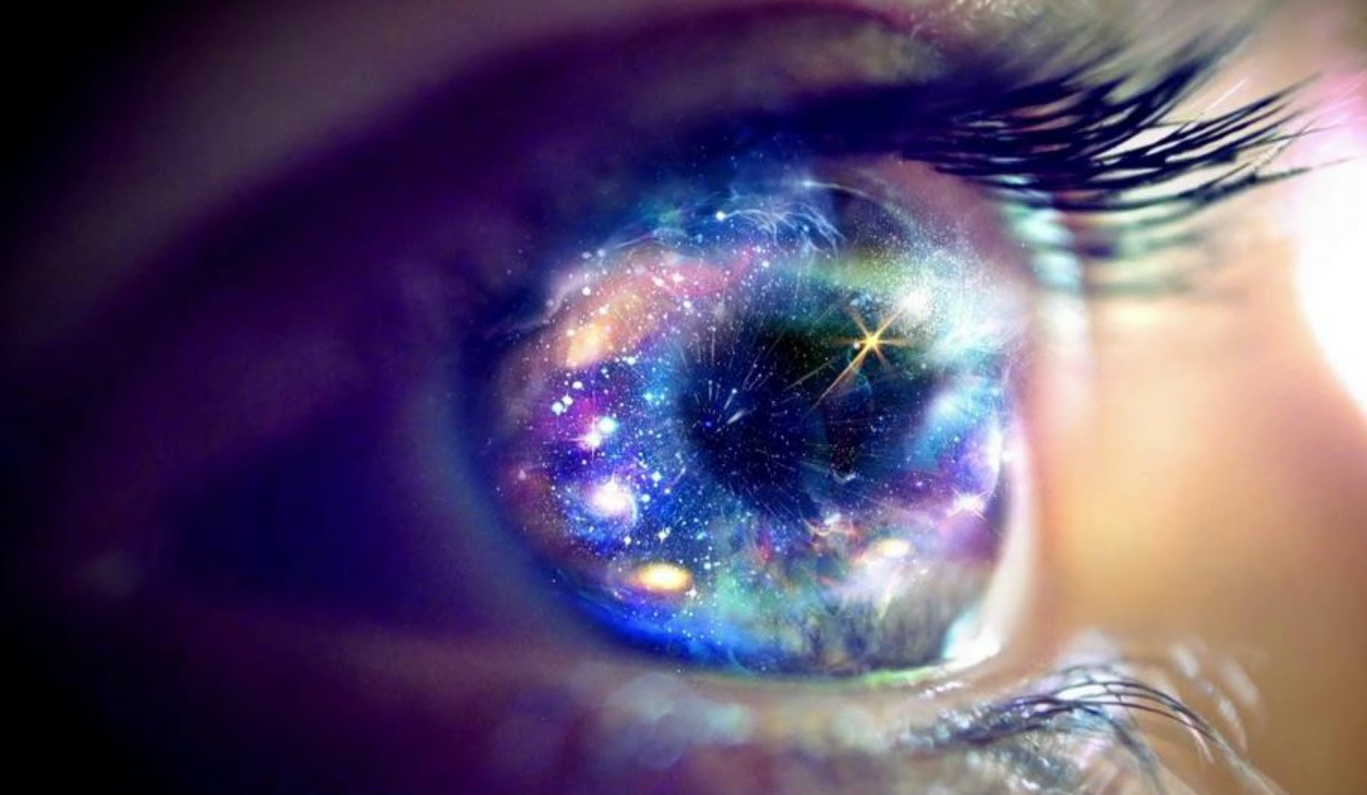
If we agree that we are not zombies, that we do in fact have consciousness, and we do agree that it makes no sense to say that we are a tiny part inside our consciousness, then I think there is only one option remaining: We are our consciousness.
We are not our ego, if it exists at all, since it would be something (a homunculus) inside consciousness. Nor can we be nothing but mechanical happenings because we are something that knows about its own existence - I experience therefore I am.
What we believe on a conceptual level is entirely different. We can believe that we are ego, we can believe that we are mechanical, we can believe that we are not conscious. If we are really conscious about what is happening, we can transcend these beliefs however, and see directly that we are conscious. Consciousness sees itself in the mirror just by being itself.
So how does this help us with our original question? It means two things. 1) freedom is not a product of mere mechanical happenings but a consequence of our consciousness. 2) freedom doesn’t come from a part inside consciousness, it comes from the totality of our conscious awareness. This ushers in a new paradigm of Conscious Freedom.
New Paradigm: Conscious Freedom and Morphological Freedom
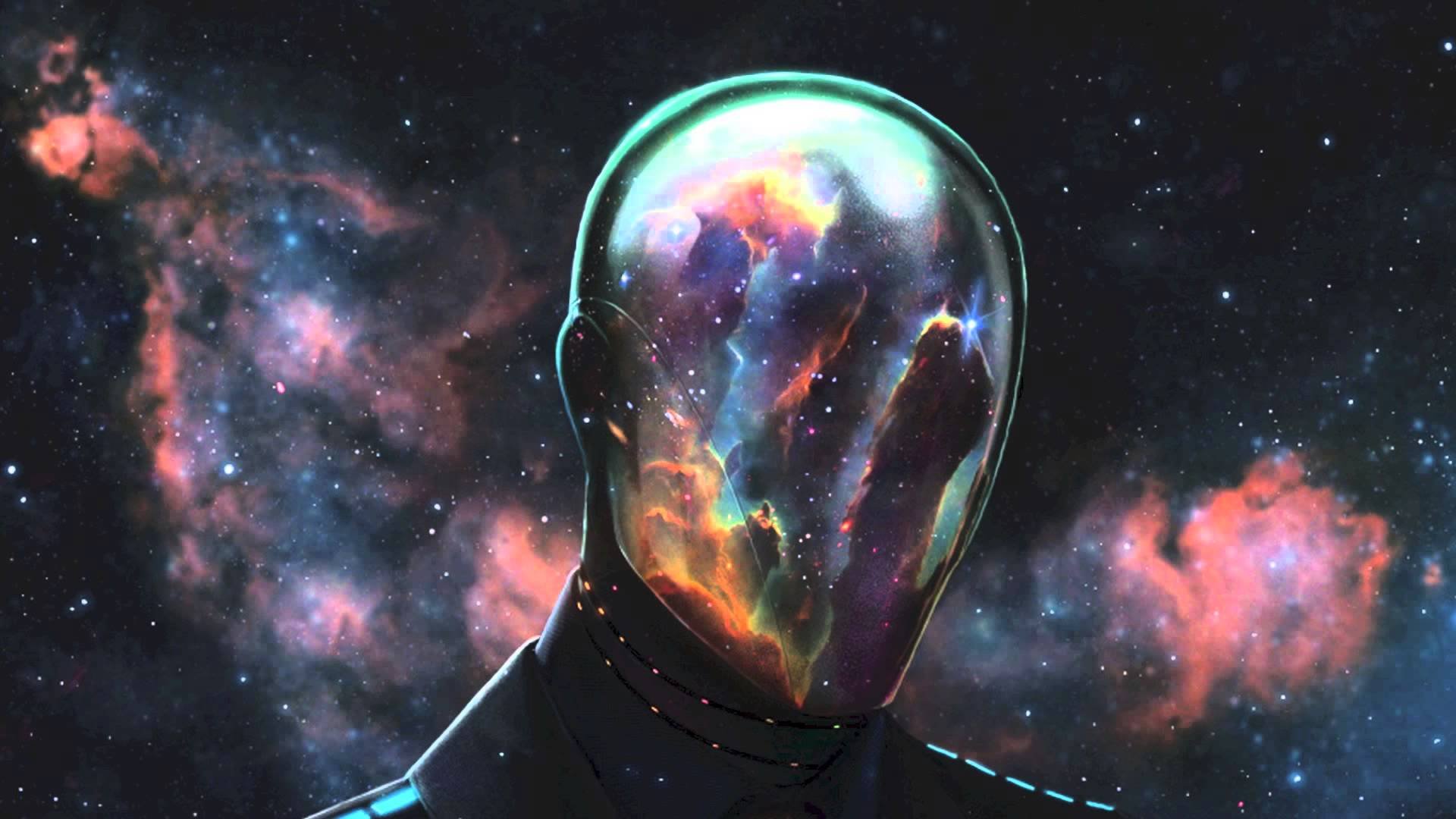
Conscious freedom integrates science, spirituality and theoretical approaches to consciousness. It sees freedom in the context of consciousness, not in the context of ego or mechanisms. Ego and mechanisms are fine, whatever they are, but they are not what human freedom is based in.
In addition to physical freedom and freedom of speech, we need to come alive to the deeper existence of conscious freedom. Currently our consciousness is more or less held captive by the limitations of our brain and our surroundings that trigger our senses. With our imagination we can to some extent transcend those limits and explore other realms of consciousness.
With books, music and now games and virtual reality we can chose our conscious experience and worlds freely. In the future we may have complete morphological freedom to shapeshift to any form and any experience, without physical or sensory restrictions.
In the light of conscious freedom we can be hopeful that current developments in technology and human-to-technology interfaces are small steps towards complete morphological freedom. And that is something to be excited about!
What do you think? Is this the right solution to the free will problem?
Sources and reading material:
http://blogs.scientificamerican.com/mind-guest-blog/what-neuroscience-says-about-free-will/
http://pss.sagepub.com/content/22/5/613.abstract
http://www.nature.com/neuro/journal/v11/n5/abs/nn.2112.html
http://www.sciencedirect.com/science/article/pii/001346948290181X
https://www.amazon.com/Vortex-Neurons-Rodolfo-R-Llinas/dp/0262621630
https://en.wikipedia.org/wiki/Philosophical_zombie
https://en.wikipedia.org/wiki/Homunculus_argument
https://www.amazon.com/Emptiness-Dancing-Adyashanti/dp/1591794595
